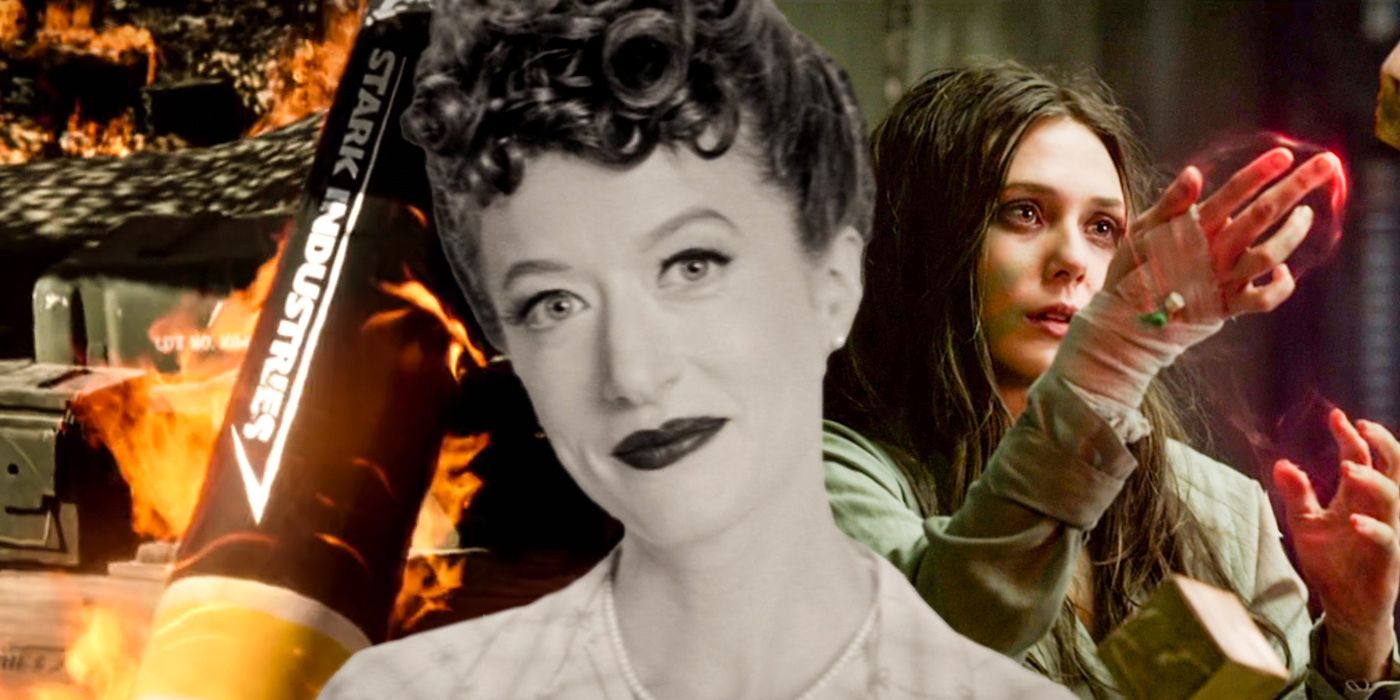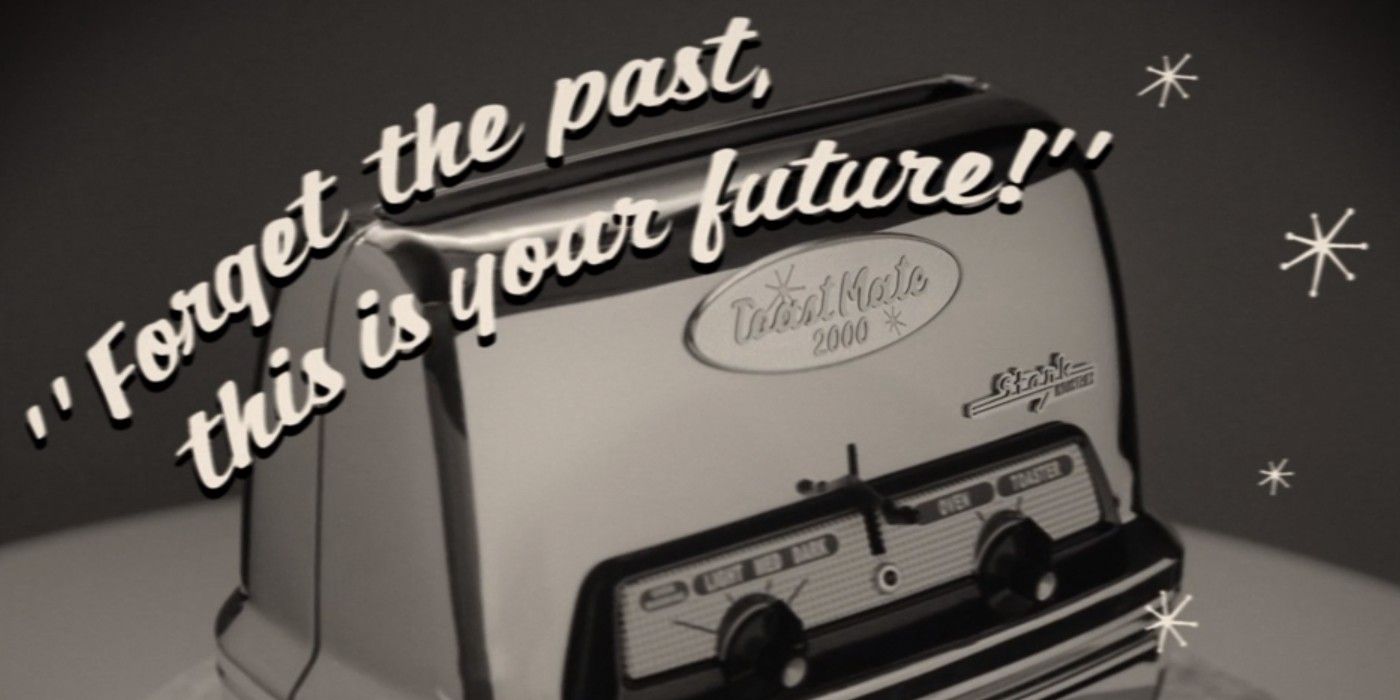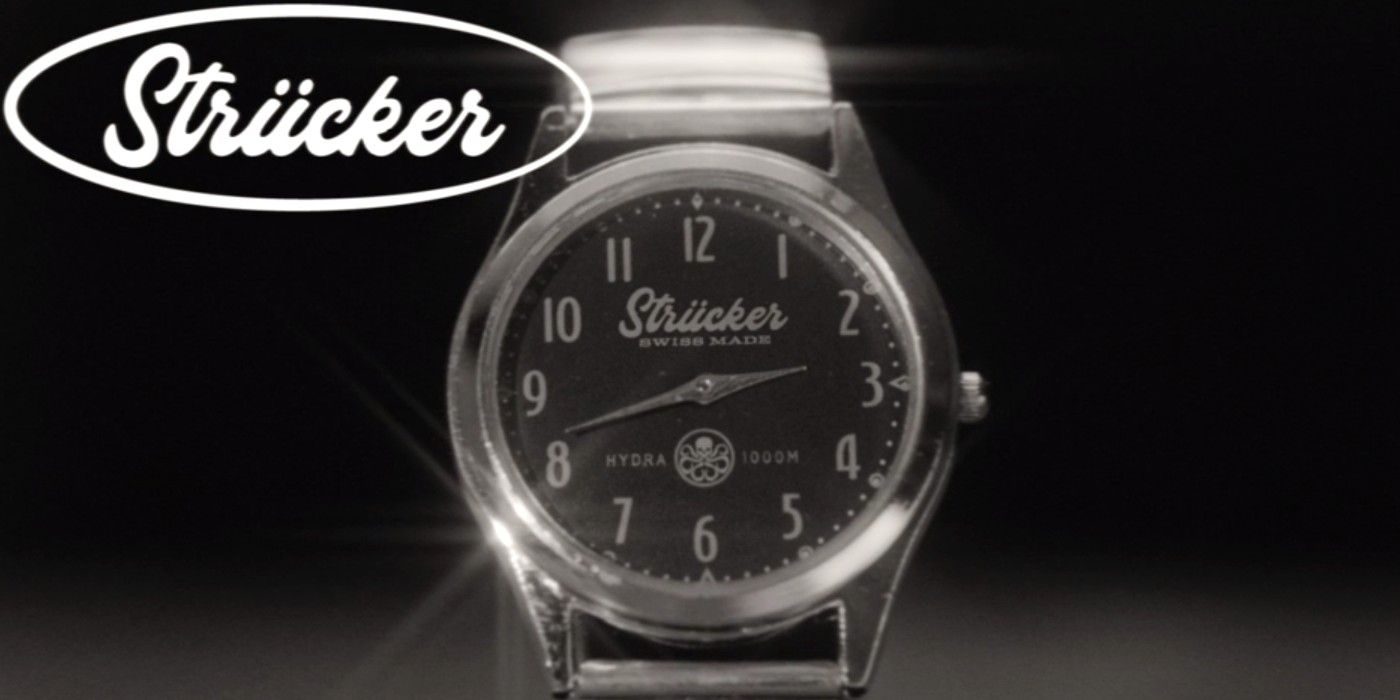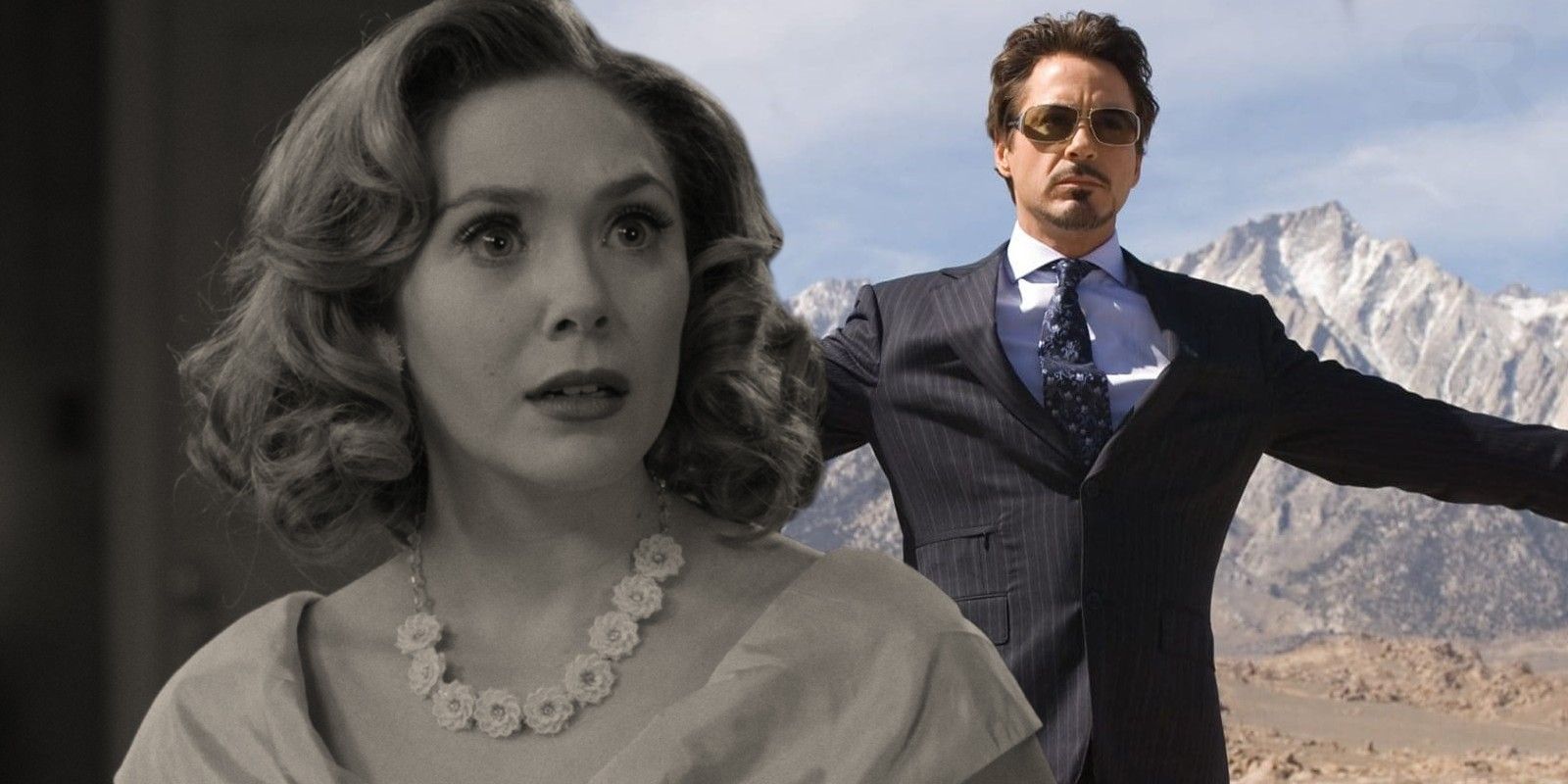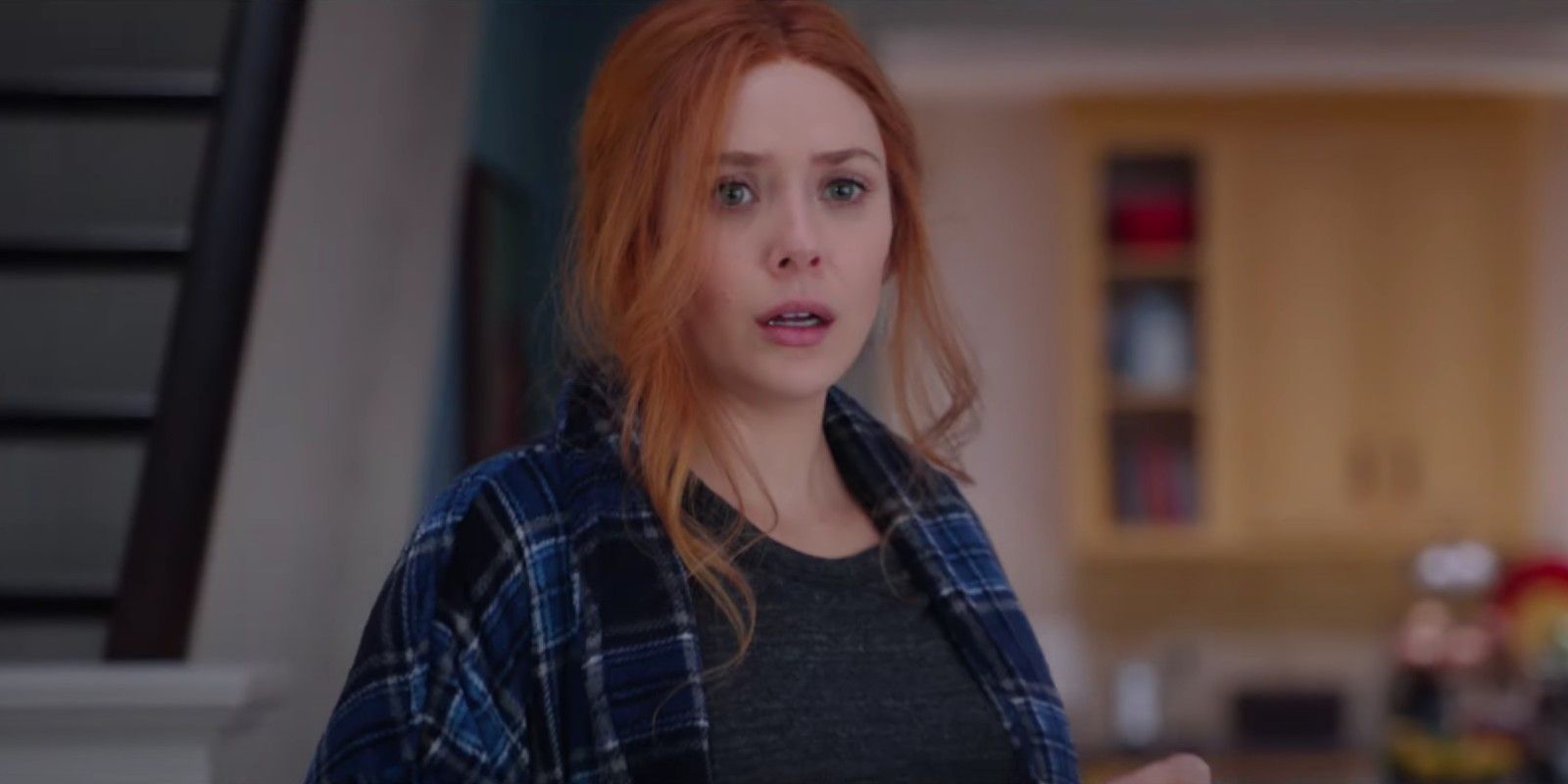Warning: Contains SPOILERS for WandaVision premiere.
WandaVision's bizarre commercials may be Wanda Maximoff's memories creeping into her made-up world. For the MCU Phase 4's inaugural project, Marvel Studios mined inspiration from classic sitcoms of decades past, and that includes the fake ads it incorporates. The new Disney+ show sees Wanda and Vision moving to the suburbs as a newly-married couple, trying to fit in and live a normal life in a 1950s-era suburb. Along with mimicking the visual elements and other storytelling devices from classic shows like I Love Lucy and Bewitched, WandaVision also features an ad per episode that has a connection to Wanda's past.
After taking a hiatus following the end of the Infinity Saga, which was further extended by the coronavirus pandemic, MCU Phase 4 has officially begun with WandaVision's special two-episode premiere. Without much context, the series immediately starts with the titular couple happily moving to Westview to start a new life, presumably an alternate reality that the grief-stricken Wanda created in the wake of Vision's death. While many of the challenges they faced in the first two episodes were mundane issues like Wanda screwing up dinner and Vision wanting to impress his boss, it's clear that there's something else happening beneath the surface. Throughout the episodes, reality keeps trying to break through to Wanda's fantasy in ways both subtle and sinister.
Some of these moments of reality intruding upon Wanda's seeming subconscious are the fake commercials in WandaVision. There have been two of them thus far and while they're made to resemble the TV ads of the specific decade each episode is built around, they're actually clear references to the MCU — ones directly linked to Wanda's personal history in the franchise. Here's what that could mean for the show overall.
WandaVision's Stark Commercial Explained
The first episode of WandaVision featured a toaster commercial created by Stark Industries. In terms of MCU's official canon, this could very well be a real advertisement from the company in the '50s considering that Howard Stark founded his corporation in the 1940s. Stark Industries mainly focused on providing aid to the U.S. Armed Forces with the creation of various weapons. While it also has other, non-military inventions, it's unclear if kitchen appliances are part of their product line.
Nevertheless, the significance of the commercial wasn't really about the toaster, but instead the role of the company in shaping Wanda's traumatic childhood and early adulthood. As the people in the advertisement showcase how the toaster works, it suddenly starts blinking red and beeping with the blinking getting faster and faster – an approximation of a bomb. As she and her twin, Pietro Maximoff, recalled in Avengers: Age of Ultron, a stray Stark Industries-created bomb fell on their apartment building in their native Sokovia when they were 10, hitting unexpectedly as they were having dinner one night with their parents. Their parents were killed, and they spent the next few days trapped in the rubble with the dud bomb that didn't go off but tortured them with its blinking. From then on, they spent the next decade years hating Tony Stark — something that wasn't really properly resolved and might never be with Iron Man now gone.
WandaVision's HYDRA Commercial Explained
WandaVision's next ad came in episode 2, and this time, it featured a company by the name of Strücker. The commercial was for a wristwatch, showing a man dressing up to go out. As the clip closed in on the face of the timepiece, the brand Strucker can be seen above the unmistakable logo of HYDRA. This was in reference to Wolfgang von Strucker — leader of the HYDRA cell who acquired Loki's scepter with the Mind Stone after The Avengers' Battle of New York and used it to experiment on the Maximoff twins. Whether his experiments gave them their powers directly or simply awakened dormant capabilities that were already within the twins, either way, Strucker's experiments put Wanda and Pietro through physical and mental torture. In any case, the experience would not have been pleasant, and also is likely a source of guilt as it was a time in Wanda's life in which she was aligned with HYDRA.
WandaVision BTS Video Teases Mystery Character (Is It Doctor Strange?)
Why Wanda's Past Is Presented As Commercials
This makes it clear that WandaVision's commercials aren't simply random ads; just like the show itself, there's something else going on in them as they feature details about some of the pertinent moments of Wanda's arc in the MCU thus far. Specifically, they're repressed memories that she may have blocked out as a coping mechanism. While Vision's death in Avengers: Infinity War may be the catalyst to Scarlet Witch's presumed breakdown on the show, it also comes after years of trauma starting with the death of her parents.
In fact, the trauma-driven vengeance they felt is what ultimately led her and Pietro to join Strucker's HYDRA experiment, which in turn resulted in her twin brother's death in Avengers: Age of Ultron. Incorporating these significant details as commercials in WandaVision is actually a clever way to drive the idea reality is trying to break through Wanda's subconscious. Ads bring viewers back to the real world, acting as a break from the escapist entertainment that TV shows usually offer. In Wanda's false but comforting reality, however, the commercials are telling of the general trajectory of WandaVision's story, emphasizing that not everything is what it seems to be in this show.
What The Commercials Mean For WandaVision's Future
As lighthearted as WandaVision has been thus far thanks to its sitcom roots, the commercials are subtly hinting at what's really happening behind the happy married life that Wanda and Vision are currently living in Westview. Scarlet Witch's real memories are currently being presented in small doses, but it's safe to say that over time, they will eventually take over the fantasy world that she created. This will inevitably leave her no choice but to confront her tragic reality that Vision is dead and the blissful marriage she's trying to manifest will most likely never happen.
As in the comics, this is a recipe for disaster; while Marvel Studios isn't directly adapting the House of M narrative, they're known to cherry-pick from certain storylines and use it in their own storytelling plans, and this is the perfect opportunity to do that. In the fan-favorite comic book run, a delusional Scarlet Witch loses control of her ability to alter reality — something that may not have been focused on in the MCU but is in full display on WandaVision. After losing her two kids with Vision, she suffers a nervous breakdown and unknowingly creates an alternate reality where her family is royalty and mutants are under the reign of Magneto. While WandaVision hasn't shown how Wanda is in the real world, it's possible that everything that's happening in Westview is a figment of her imagination. While daydreaming isn't technically harmful, her ability to warp realities poses a threat not only to her but the very fabric of MCU's reality. Eventually, she'll need to stop repressing her memories and deal with painful reality.

